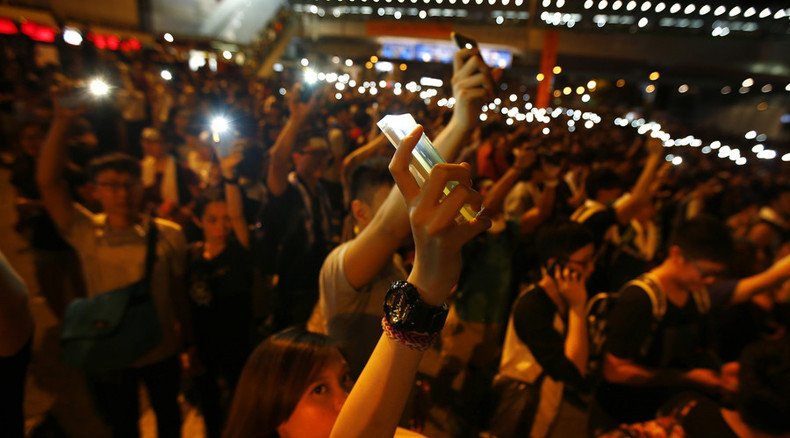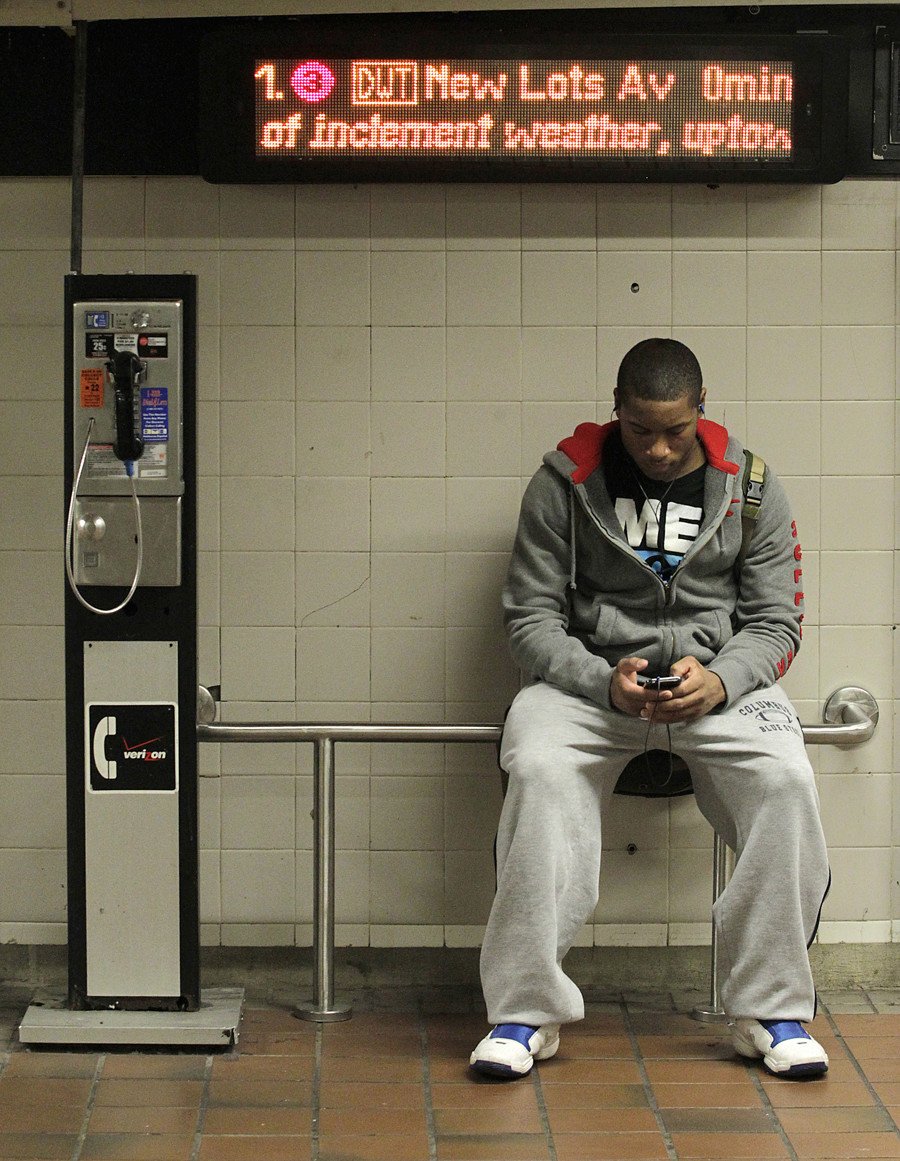Tinder killed the nightclub star

Over half of UK nightclubs have closed since 2005. This dramatic decline will leave Britain worse off “culturally, socially and economically,” experts warn.
I’ve been to hundreds of nightclubs. On all continents, except Antarctica. Yet I’m not sure I ever actually liked any of them. I doubt I’m alone in this.
So why did I go? It was hardly the music; most clubs play electro or R&B and I prefer rock. As I’m not particularly attracted to large crowds, it certainly wasn’t the idea of being packed in a large room with hundreds of other people, either. The drink was hardly a reason - it’s far cheaper in pubs. Nevertheless, I hadn't many club-free Saturday nights in my 20s.
I think the real inspiration to go clubbing was simple. We wanted to meet members of the opposite sex, or the same if you prefer that. Nightclubs were dating supermarkets: From cavernous WalMarts, right up to the expensive, allegedly exclusive, Whole Foods. Like stores, their clientele varied depending on the price and location.
Of course, different cities had different vibes. Berlin was anything goes; a kind of Disneyland for adults. Much to my chagrin, nobody really dressed up. Los Angeles was the other extreme. Everybody dressed up too much. To make things even worse, most venues closed at 1.30 a.m. This was about the same time things started to get interesting in Berlin.
Bono's bouncers
Moscow and Kiev were another world entirely. A planet where everything was decided by “face control.” The face part only actually applied to females. Men’s visage was less important than how expensive their shoes or suit looked. West of Vienna, men often wore jackets. In the east, bouncers wouldn’t let you. Even when it was cold.
Dublin was my formative club city. When I arrived as a teenage college student, the hippest club in town was The Kitchen, owned by U2’s Bono and The Edge. The first three times I tried to get in, I failed. The fourth time I succeeded. Christy Turlington was there. Sadly, she didn’t try to chat me up.
The other Dublin hotspot was Lillie’s Bordello. While I thought I looked wonderful, the door staff didn’t agree. Their repeated failure to recognize my potential meant that I couldn’t party with Irish soap opera actors and people who once shook hands with Bono. This genuinely upset me at the time.
Instead, I went to “meat-markets.” Bad Bobs, Fitzsimons, Rí Rá and Club M. Joints where “face control” was unheard of and the man with a £20 note was king. Later, I graduated to Leeson Street, where in a curiously Irish phenomenon, you couldn’t buy domestic beer, only imported wine. Wine that cost £50 a bottle. In 1999.
Bangers, Mash & Booze
That year, The Herald's editor - for reasons only known to himself - decided to give me my own daily newspaper column. After this mistake on his part, doors opened. The management at Lillie’s Bordello suddenly changed their position. In fact, they even gave me my own key. I handed it on to a homeless person one night. I’d like to think that he recovered from his problems and now occasionally drops into Lillie’s and demands their best table.
Irish nightlife was odd. Bars closed at 12.00 midnight. Strictly. Unless the Gardai (police) drank there. In that case, they stayed open as long as they liked. If you didn’t fancy hanging out with the cops, the only realistic option was to hit a club. They opened until between 3am and 4am and were also obliged to offer a meal. I’m not joking. One assumes this was to sober people up.

Outside of Dublin, nightclubs often concluded the evening with a rendition of the national anthem. DJs surely got a kick out of the sight of intoxicated revelers slobbering over the tune. With no real competition, they prospered. In the year 2000, Dublin had far more nightclubs than it had men with hipster beards. For this reason alone, Dublin in 2015 sucks by comparison.
When I made it over to London, things were even more restricted. Pubs shut at 11, clubs around 2.30. In the more fashionable nightspots around Mayfair and Chelsea, people dressed to impress. Often in the Zsa Zsa Gabor sense, and especially after the Russians descended en masse around 2004. There was even a venue on Conduit Street, Sketch, where the toilets resembled eggs. White eggs, not Faberge eggs.
In London’s suburbs, especially around Camden and Islington, unpretentious dive clubs dotted the streets. These were rather good fun. Alongside was the legendary Camden Palace which had a capacity of 2,500. At the Chalk Farm end of the road, Marathon was the maddest place ever. A takeaway which doubled as a late-night rock joint. It was my “local” and I saw everyone from Liam Gallagher to Johnny Depp there. Even Angelina Jolie. All enjoying a kebab and can of Carling, while watching the resident Elvis impersonator - who happened to be French.
From Russia with clubs
Russia was another story entirely. There were no restrictions on licensing hours. Long after shabby chic, later to evolve into the contemporary hipster trend, had sucked the luxury out of European clubs, Moscow oozed it. People still make an effort in Russia. The prices reflect that. However, for someone raised in the tightly-controlled British Isles system, the country is dangerous. Russia’s liberal laws and Irish drinking habits are a bad combination. I eventually quit altogether. Sober clubbing made me question how in God’s name I believed it to be such fun, for so long. Soon, I gave that up too. The clubbing, not the questioning.
Now, I read that nightclubs are going the way of the Dodo. According to BBC, in 2005 there were 3,144 in Britain and that number is now down to 1,733. That’s a heck of a fall in a decade. I don’t have numbers for Ireland but anecdotally people suggest the fall has been even sharper. Even in Russia, in my former stomping ground of Khabarovsk, it turns out that the city’s most famous club, Hospital, closed its doors last year.
What killed the beat? Lohan Prescencer of Ministry of Sound blames the economy and government legislation. He points to “later pub opening hours, the smoking ban, student tuition fees and the squeeze that a lot people are under financially since the recession.”
This is codswallop. As video killed the radio star, technology has finished off clubs. It was never about the music. It was about meeting people. Why go to the trouble of preening yourself and making a huge effort when it’s easier to meet someone on Tinder?
Attracting a mate was once a type of performance art. To stand out from the crowd you needed exceptional clothes or super dance moves. To seal the deal, smooth chatter helped. Naturally this favored the gregarious. Shrinking violets got stuck on the shelf.
Sadly, dating has now become something akin to dialing a pizza or browsing the Asda catalogue. Whereas people who met online or through dating agencies once hid it, now they are quite proud of it. Tinder killed the nightclub star.
Music is suffering too. It needs clubs. In an era where only idiots like me pay for music, without nighttime gigs, musicians and DJs simply cannot make a living.
Future generations will probably react with horror when we regale them with our - highly censored - nightclub stories. I'll remember the glory days. When Dublin was about Lillie's and The Kitchen, London Fabric and Embassy and Berlin Cookies and Berghain.
Places of nothingness, yet places of fulfilment. Places where Samuel Beckett could dance with Edith Piaf and nobody would bat an eyelid.
The statements, views and opinions expressed in this column are solely those of the author and do not necessarily represent those of RT.
The statements, views and opinions expressed in this column are solely those of the author and do not necessarily represent those of RT.














